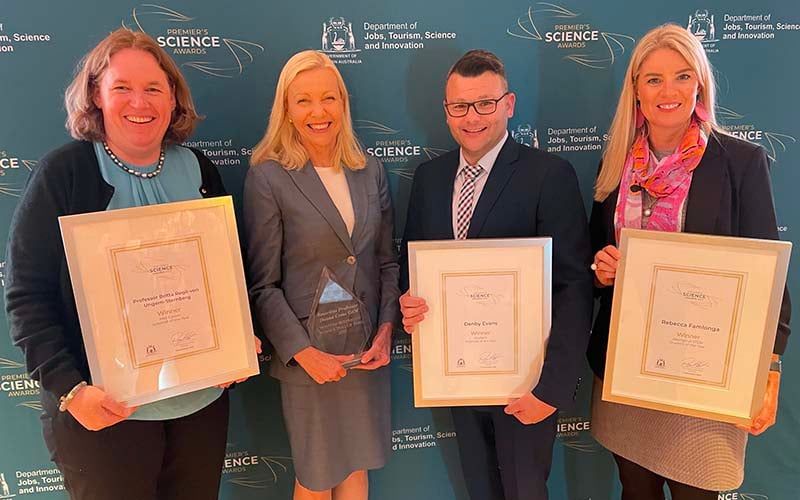Search
Showing results for "early lung health"
Research
Safety and Immunogenicity of Neonatal Pneumococcal Conjugate Vaccination in Papua New Guinean Children: A Randomised Controlled TrialWe conducted an open randomized controlled trial in Papua New Guinea to compare safety, immunogenicity and priming for memory of 7-valent PCV (PCV7) given in...
Research
An infant mouse model of influenza-driven nontypeable Haemophilus influenzae colonization and acute otitis media suitable for preclinical testing of novel therapiesNontypeable Haemophilus influenzae (NTHi) is a major otitis media (OM) pathogen, with colonization a prerequisite for disease development. Most acute OM is in children <5 years old, with recurrent and chronic OM impacting hearing and learning. Therapies to prevent NTHi colonization and/or disease are needed, especially for young children. Respiratory viruses are implicated in driving the development of bacterial OM in children.
Research
Evaluation of a bacterial therapy for prevention of respiratory infection including influenza and otitis mediaDeborah Lea-Ann Peter Ruth Strickland Kirkham Richmond Thornton PhD PhD MBBS MRCP(UK) FRACP PhD Head, Pregnancy and Early Life Immunology Co-Head,

Research
WA Aboriginal Child Health Survey (WAACHS) Linked Data StudyThis study is a partnership between researchers, the Aboriginal community and government to provide evidence for policy and practice addressing high priority health and wellbeing issues for Aboriginal children and families.

News & Events
Urgent action needed to tackle health impacts of climate changeThe Kids Research Institute Australia supports calls from the Intergovernmental Panel on Climate Change (IPCC) for transformational action if we are to secure a liveable future.
There are lots of ways of getting involved in the research at the Wesfarmers Centre.

News & Events
The Kids Research Institute Australia researchers take out prestigious Premier’s Science AwardsThree outstanding researchers have won 2023 Premier’s Science Awards, with another inducted into the prestigious WA Science Hall of Fame.
Research
Hospitalisation for bronchiolitis in infants is more common after elective caesarean deliveryThe authors previously reported an increased risk of hospitalisation for acute lower respiratory infection up to age 2 years in children delivered by...

News & Events
The Kids researchers named as finalists in 2023 Premier’s Science AwardsFive The Kids Research Institute Australia researchers working across diverse and highly impactful areas of child health research have been named as finalists for the 2023 Premier’s Science Awards.
Research
Lessons from COVID-19: A reflection on the strengths and weakness of early consensus recommendations for pediatric difficult airway management during a respiratory viral pandemic using a modified Delphi methodThe authors recognized a gap in existing guidelines and convened a modified Delphi process to address novel issues in pediatric difficult airway management raised by the COVID-19 pandemic. The Pediatric Difficult Intubation Collaborative, a working group of the Society for Pediatric Anesthesia, assembled an international panel to reach consensus recommendations on pediatric difficult airway management during the COVID-19 pandemic using a modified Delphi method.
